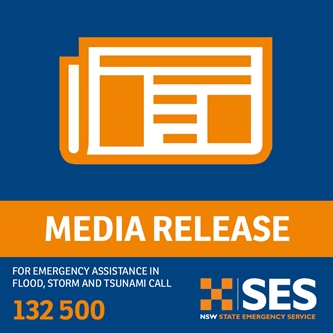The McGowan Labor Government has released the Western Australian Climate Policy, outlining actions to create a low carbon future and create jobs in clean industries to support WA’s economic recovery.
The policy will ensure our environment, economy and the community are more resilient and better prepared for the unavoidable impacts of climate change. It includes actions to drive our transition to net zero emissions by 2050.
It focuses on six key areas – clean manufacturing and future industries; transforming energy generation and use; storing carbon and caring for our landscapes; lower carbon transport;
resilient cities and regions; and government leadership.
The policy includes a significant investment in low carbon initiatives, including:
- $21 million for an Electric Vehicle Strategy;
- more than $100 million towards the 100 megawatt big battery;
- $15 million for the WA Carbon Farming Strategy and Land Restoration Program;
- $3.1 million for the Climate Science Program for improved climate change projections;
- Plan for a net zero transition across WA’s public sector;
- $15 million Renewable Hydrogen Fund, plus $13 million funding to support the fledgling industry;
- $60 million Green Jobs Plan;
- $9.2 million Clean Energy Future Fund;
- Renewable Hydrogen Strategy; and
- The Future Battery Industry Strategy.
The Western Australian Climate Policy coincides with the release of the $21 million Electric Vehicle Strategy, a new plan to support improved uptake of electric vehicles and facilitate a low emissions transport sector.
The Strategy includes an action plan to support further uptake of electric vehicles, including a State-wide charging network and government investment in electric fleet vehicles.
The Climate Policy also includes a commitment for a WA Carbon Farming Strategy to enhance participation in carbon farming, empower traditional owners and deliver regional jobs across the State.
Carbon farming will be a key part of the State’s commitment to work with all sectors of the economy to achieve net zero greenhouse gas emissions by 2050, and the strategy will significantly increase the supply of WA carbon offsets and capitalise on the growing local and international demand for carbon credits.
The policy also includes a $15 million Carbon Farming and Land Restoration Program to support carbon farming projects on freehold land, develop new agricultural management techniques, restore natural landscapes, and support sustainability of the regions.
The Climate Policy also includes a suite of initiatives to support adaptation planning and climate resilience, including a $3.1 million Climate Science Program to develop improved climate change projections.
The McGowan Government has allocated more than $100 million towards the 100 megawatt big battery to support integration of more renewable energy and improve grid security.
The 100 megawatt big battery will have the capacity to power 160,000 homes for two hours, and will be housed at the decommissioned Kwinana Power Station.
It’s expected a contract will be awarded by May 2021 and the battery could be operational by September 2022.
Other commitments include a net zero transition across the public sector, scenario modelling for a zero-emissions electricity sector and the development of sectoral strategies to guide the transition across the State’s key economic sectors.
The policy builds on existing initiatives over the last two years including a Renewable Hydrogen Strategy, $15 million Renewable Hydrogen Fund, $60 million Green Jobs Plan, Future Battery Industry Strategy and $9.2 million Clean Energy Future Fund which received an additional $10 million as part of the WA Recovery Plan.
Read about the State Government’s climate change actions and consultation findings .
As stated by Premier Mark McGowan:
“The Western Australian Climate Policy emphasises the importance of reducing greenhouse gas emissions in this State, increasing jobs and growing our economy as we continue our recovery from COVID-19.
“It ensures Western Australia uses the levers available to us as a State to reduce the impacts of climate change. The State Government will continue to advocate for national, uniform action to reduce emissions
“The policy commits to tangible initiatives to enhance climate resilience, transition the State to a low carbon economy, and help the community to adapt to the impacts of climate change.
“It positions Western Australia to respond decisively to climate change and to capture opportunities of a low carbon future as we continue on the path to recovery.
“It will also leverage our State’s enormous natural advantages to build clean industries, and jobs that come with it, and transition existing industries to low carbon operations.”
As stated by Environment Minister Stephen Dawson:
“This policy demonstrates the State Government’s commitment to work with all sectors of the economy to achieve net zero greenhouse gas emissions by 2050.
“The policy enhances Western Australia’s climate resilience and capacity to thrive in a low-carbon future.
“These actions accelerate the energy and technology transformations already underway and assist in building a cleaner, greener economy.
“A co-ordinated approach to climate change will ensure we contribute to national emissions reductions and leverage our competitive advantages as an emerging clean energy superpower.”
Premier’s office – 6552 5000








